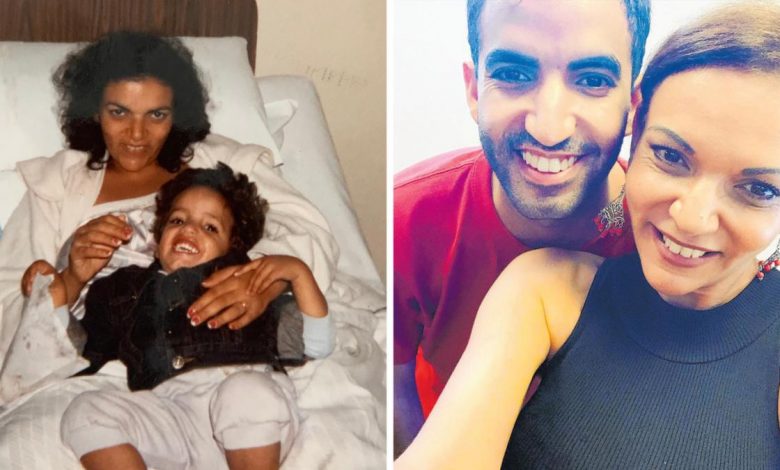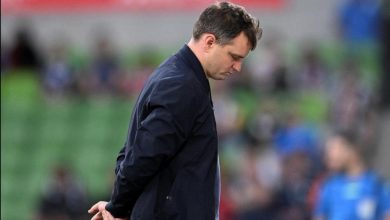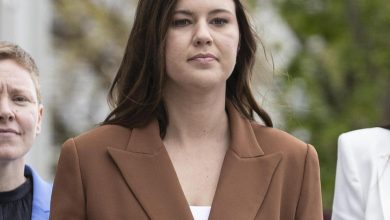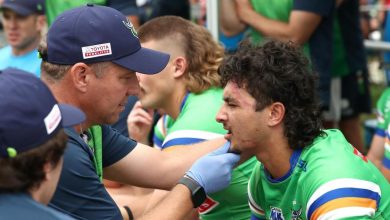Anne Aly draws on personal experiences of deafness with her son to create an early childhood education plan

When Anne Aly was a young, first-time mother, a preschool teacher took her aside to suggest taking her son to a doctor, fearing he wouldn’t interact with the other children in the usual way.
She did, and discovered that a series of chronic ear infections had left Adam with severe deafness, which required surgery to fix.
The surgeon told her that the toddler was lucky not to have any long-term damage because if the problem had persisted it could have led to permanent hearing loss.
“As soon as Adam’s hearing was repaired, he started talking and hasn’t shut up since. He became Dux of his school. He read when he was three years old,” said Dr. Aly, now Minister for Early Childhood Education, told The West.
“And if[early childhood educators]hadn’t noticed that about Adam, he might have suffered permanent hearing loss.”
She says the experience showed her how central early childhood education was to a child’s development and overall life.
dr Aly and Social Affairs Secretary Amanda Rishworth are jointly developing a government-wide strategy for the early years, with experts from across the country attending a big summit in Canberra on Friday to update on the work.
People working in the sector, researchers, doctors, parents, indigenous representatives and policy makers will attend along with Prime Minister Anthony Albanese and Treasurer Jim Chalmers. There’s a solid WA contingent, including telethon patron Fiona Stanley, autism expert Andrew Whitehouse, and pioneering psychiatrist Helen Milroy.
“We have a huge opportunity here to really change a child’s development,” said Dr. Aly.
“My son is an example of that. But there are potentially millions more examples out there.
“And if we have this opportunity, we have this power in our hands to change the course of a child’s life, why not use it?”
Her vision is to break down the silos of policies – health, education, social services, indigenous support – and take a holistic approach to how children and their families are supported in the first five years of life.
This is something many in the industry have been asking for for years.
Penny Dakin, chief executive of the Australian Research Alliance for Children and Youth, said there is decades of solid research showing that the first five years, or 1000 days, of a child’s life is the best time to set them on a solid path.
Investing in the early years would go a long way in solving big problems like deep-rooted disadvantage and inequality, she told The West.
“It’s not the only chance, but it’s often the strongest,” she said.
“If we can’t find really creative and clever ways to improve the experiences that children and their families and their communities are having during this time, how can we hope to address some of the big underlying problems?” with which our society is confronted?”
As the strategy develops over the next 18 months, Ms Dakin was hoping for concrete results from Friday’s meeting, similar to what happened at the Government’s Jobs and Skills Summit last year, even if it was just a commitment to working differently.
She said there are already many answers based on evidence and community-driven practice, but it takes governments to embrace them and be willing to invest in change.
“I would be very disappointed if we talked all day and it didn’t get anywhere,” Ms Dakin said.
The Australian Education Union wants to see progress in providing universal access to free three-year pre-schools across the country, as well as action to address the childcare workforce crisis.
“Right now too many children are missing out on early childhood education due to the design of the current system,” said National Secretary Correna Haythorpe.
“The best head start we can give Australian children is at least two years of quality, play-based learning delivered by a qualified early childhood educator.”
Early childhood education advocate Georgie Dent, of The Parenthood, urged politicians to be ambitious and push the sector to seize the opportunity of a listening government.
“This is the start of an important shift from addressing the current issues in the existing model to a system-wide reform that really makes a difference for all children in Australia,” she said.



